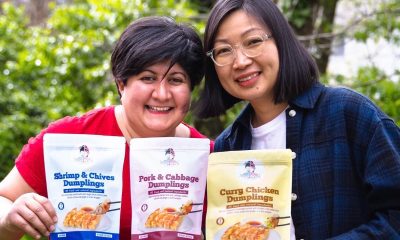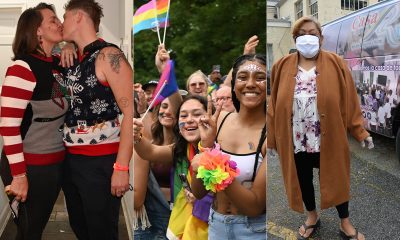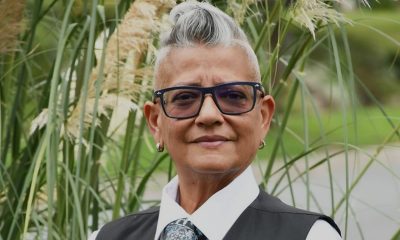Arts & Entertainment
Gay couple takes stage at Renaissance Festival
Marylanders relive 1544 England each weekend
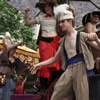
The year is 1544. The location is Revel Grove, a small village in the county of Oxfordshire, England. The Royal Court of King Henry VIII is paying a visit to this village as part of its annual summer progress. Attending on His Majesty is the Archbishop of Canterbury, Thomas Cranmer, and his partner, the diplomat Sir Ralph Sadler.
Wait a minute! If you don’t remember reading that in a history book, perhaps some clarification is needed. Revel Grove is a fictitious name given to the site at The Maryland Renaissance Festival. And while no history book mentioned a relationship between the Archbishop and Sir Ralph, the actors who portray those characters have been together for 17 years.
Steven Edward Kirkpatrick (Archbishop Cranmer), and Charles Boyington (Sir Ralph), currently live in Hyattsville but make the drive to 16th century England each weekend as part of the acting company of the Maryland Renaissance Festival.
Not surprisingly, theater is what drew the couple together. They met in Memphis, Tenn., while working at the Playhouse on the Square. Charles was directing the play, “Marvin’s Room,” and Steven was supposed to audition but someone had told him there was no role for him in the play.
“It worked out for the best since I would not have been open to dating him if I was also directing him at the time,” says Charles.
“Looking at pictures of those years, we look like mere kids,” muses Steven. “The amazing thing is that it doesn’t seem like that long.”
Both have been performing for more than 20 years but do not often act together.
“More often than not we do our own thing,” says Charles. “We were in a production of Jekyll and Hyde, which was written for us. I was Jekyll and Steven was Hyde.”
“We haven’t performed together in several years,” notes Steven, “so the festival has been fun. Once we did play the same role in the same show. There was a period back in Memphis when Charles somehow ended up being my unofficial understudy for several roles. He took over for me as Sebastian in The Tempest when I had to step in as Prospero. It’s amusing to see photos of us playing the same role and wearing the same costume, but I will say he always played the character very differently from me.”
While both feel a major benefit for a couple performing in the same show is the ability to carpool, is there ever a strain to being in the same production?
“Theater has always been a primary bond between us, so it is far more positive than a negative. If we don’t get a chance to perform regularly we both suffer, so this way we’re both getting an important need met,” says Steven.
“Most of the time it is great fun,” says Charles. “The only issue is I like to arrive early to rehearsals and performances and then stay later than necessary to hang out. Steven wants to arrive later and leave earlier. This is true in just about everything we do though.”
Actors can be sensitive regarding their work. Shelley Winters claimed her husband, Vittorio Gassman, once gave her a black eye when she confessed she preferred Olivier’s Hamlet to his. As a couple, do they ever critique each other’s work?
“As the years have gone by, we have learned how to critique each other without tripping on toes,” laughs Steven.
Steven first performed at the Festival in 2002, and Charles in 2008. Steven was on a hiatus for a few seasons, so this is the first year they have performed together at the venue. As a gay couple, they have they found the Renaissance Festival a positive performing environment.
“It can appear different on the surface since there is an emphasis on machismo by some of the guys in the cast,” says Charles. “But most of that is just trying to play up the time period. Once you get to know these folks, they are perhaps the most accepting people on the face of the earth. They come from all walks of life and have a ‘live and let live’ philosophy.”
Stephen agrees, “Because so many actors love this venue and are given a chance to return, there is definitely a sense of this being like a second family. I’ve always felt that I can truly be me in all of my many aspects and have complete acceptance in this venue. And I don’t always feel that way in certain sectors of the gay community! The cast and vendors are wonderful, so it’s been great.”
Steven and Charles will be performing at The Maryland Renaissance Festival weekends through Oct. 23.
Out & About
Plan your wedding the LGBTQ way
Washington D.C. LGBTQ+ Wedding Expo scheduled for Sunday
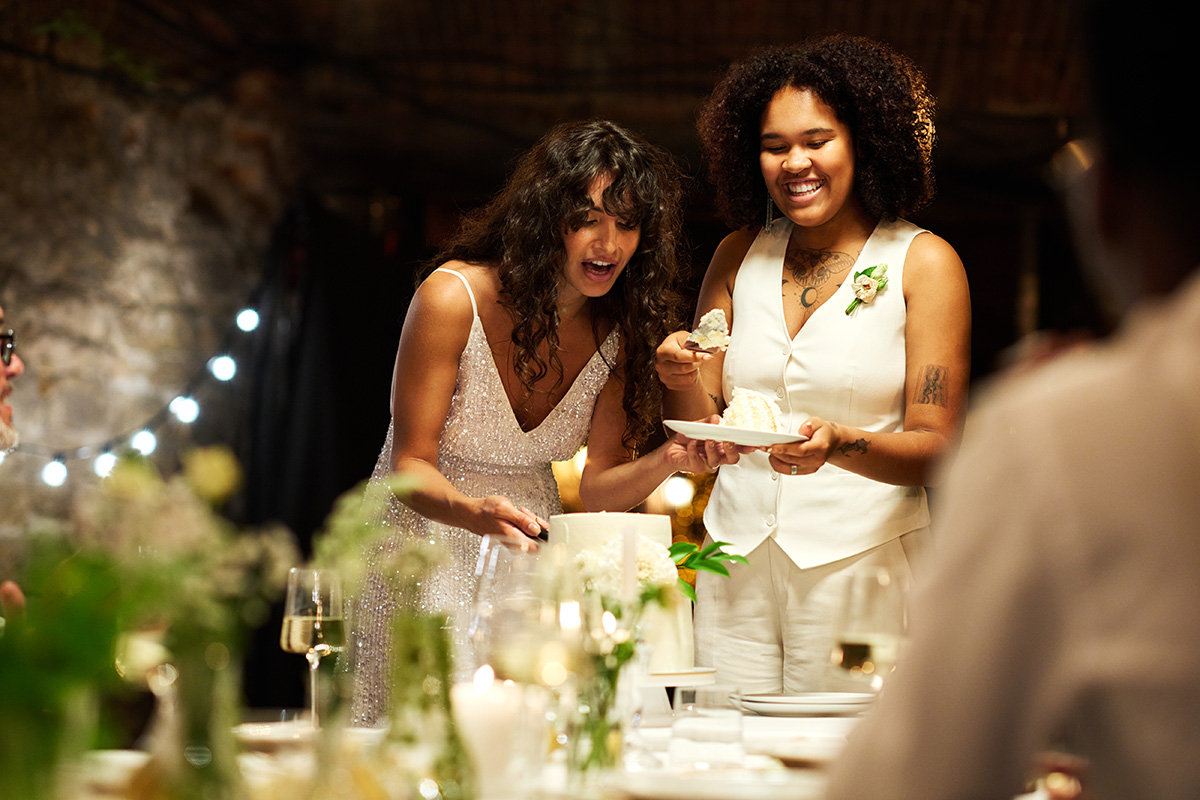
Rainbow Wedding Network will host “Washington D.C. LGBTQ+ Wedding Expo” on Sunday, March 1 at 12:30 p.m.
Guests can meet and mingle with a curated selection of LGBTQ-welcoming wedding professionals from across the region, each ready to help bring your vision to life, and spend a beautiful afternoon exploring everything they need to create a celebration that reflects them.
There will be a relaxed, self-guided look at the Watergate’s spaces and amenities, savor signature cocktails and delicious tasting samples, and connect with other couples who are on the same journey.
Visit Eventbrite to reserve a spot.
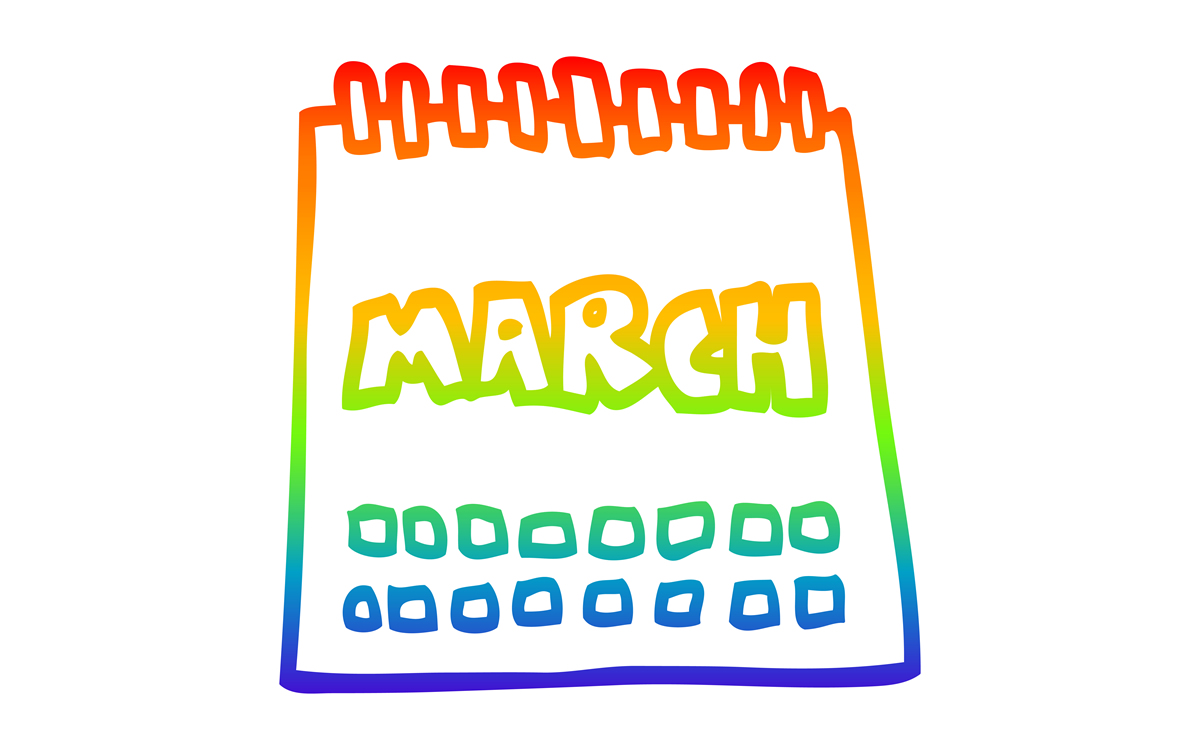
Friday, February 27
Center Aging Monthly Luncheon With Yoga and Drag Bingo will be at 12 p.m. at the DC Center for the LGBT Community. Email Mac at [email protected] if you require ASL interpreter assistance, have any dietary restrictions, or questions about this event.
Go Gay DC will host “LGBTQ+ Community Happy Hour Meetup” at 7 p.m. at Freddie’s Beach Bar and Restaurant. This is a chance to relax, make new friends, and enjoy happy hour specials at this classic retro venue. Attendance is free and more details are available on Eventbrite.
Trans Discussion Group will be at 7 p.m. on Zoom. This group is intended to provide an emotionally and physically safe space for trans people and those who may be questioning their gender identity/expression to join together in community and learn from one another. For more details, email [email protected].
Saturday, February 28
Go Gay DC will host “LGBTQ+ Community Brunch” at 11 a.m. at Freddie’s Beach Bar & Restaurant. This fun weekly event brings the DMV area LGBTQ+ community, including allies, together for delicious food and conversation. Attendance is free and more details are available on Eventbrite.
The DC Center for the LGBT Community will host “Sunday Supper on Saturday” at 2 p.m. It’s more than just an event; it’s an opportunity to step away from the busyness of life and invest in something meaningful, and enjoy delicious food, genuine laughter, and conversations that spark connection and inspiration. For more details, visit the Center’s website.
Black Lesbian Support Group will be at 1 p.m. on Zoom. This is a peer-led support group devoted to the joys and challenges of being a Black lesbian. You do not need to be a member of the Beta Kappa Chapter or the Beta Phi Omega Sorority in order to join, but they do ask that you either identify as a lesbian or are questioning that aspect of your identity.Send an email to [email protected] to receive the zoom link.
Sunday, March 1
LGBTQ+ Community Coffee and Conversation will be at 12 p.m. at As You Are. This event is for people looking to make more friends and meaningful connections in the LGBTQ community. Attendance is free and more details are available on Eventbrite.
Monday, March 2
“Center Aging: Monday Coffee Klatch” will be at 10 a.m. on Zoom. This is a social hour for older LGBTQ+ adults. Guests are encouraged to bring a beverage of choice. For more information, contact Adam ([email protected]).
Tuesday, March 3
Universal Pride Meeting will be at 7 p.m. on Zoom. This group seeks to support, educate, empower, and create change for people with disabilities. For more details, email [email protected].
Wednesday, March 4
Job Club will be at 6 p.m. on Zoom upon request. This is a weekly job support program to help job entrants and seekers, including the long-term unemployed, improve self-confidence, motivation, resilience and productivity for effective job searches and networking — allowing participants to move away from being merely “applicants” toward being “candidates.” For more information, email [email protected] or visit www.thedccenter.org/careers.
Center Aging Women’s Social and Discussion Group will be at 6 p.m. on Zoom. This group is a place where older LGBTQ+ women can meet and socialize with one another. There will be discussion, activities, and a chance for guests to share what they want future events to include. For more information, email [email protected].
Thursday, March 5
The DC Center’s Fresh Produce Program will be held all day at the DC Center for the LGBT Community. People will be informed on Wednesday at 5 p.m. if they are picked to receive a produce box. No proof of residency or income is required. For more information, email [email protected] or call 202-682-2245.
Virtual Yoga Class will be at 7 p.m. on Zoom. This free weekly class is a combination of yoga, breathwork and meditation that allows LGBTQ+ community members to continue their healing journey with somatic and mindfulness practices. For more details, visit the DC Center’s website.
a&e features
Transmission DC breathes new life into a storied sound space
A fresh home for boundary-pushing culture on H Street

Late last year, phoenix-style, a fresh home for boundary-pushing culture arose on the H Street corridor. Transmission DC – a queer, trans, and POC-owned, operated, and centered community-focused venue – powered on in the former home to the Rock & Roll Hotel (famously, not a hotel, but very much rock & roll). Transmission (1353 H St., N.E.) arrives secure in its mandate – or even birthright – to provide a place to celebrate creativity and music through a lens of inclusivity and respect.
Transmission’s team brings experience, but also representation. Owners/partners Kabir Khanna (who is also programming director), Katii B, Ellie McDyre, and Kelli Kerrigan together previously managed 618 productions, a venue in Chinatown, crafting “some of D.C.’s freakiest parties, raves, and mosh pits” they note.
They packed up operations last fall to a space curated specifically for D.C.’s underground music and culture scene, building their efforts in Chinatown to bring in more fans in queer and POC circles.
Transmission, Khanna points out, is built on DIY values. In the music scene, DIY means that promoters and organizers – often disconnected from the mainstream and part of marginalized communities – build shows and programs collaboratively, but independently from institutions, supporting each other as smaller, independent venues close. Here, Transmission aims to ensure that those putting together these underground inclusive shows have a more permanent and stable home, can have access to resources, and can provide more sustainable income to artists. “We’re trying to get more people to support and enjoy the music, and also give artists and organizers within the DIY community more structure and a larger cut,” says Khanna.
Khanna also notes that Transmission operates “under the principles of safety, inclusivity, and respect.” McDyre added that even at venues that claim inclusivity, that statement might not take place in practice. We’re “not just pitting up a rainbow flag,” says McDyre, but as some of the owners are trans and POC, audiences can see themselves reflected at the top.
Much like the DIY nature of the music community, the Transmission owners brought a DIY ethos to turning around their space.
In March 2020 – the height of COVID lockdowns – Rock & Roll Hotel suddenly shuttered, though not due to the pandemic; instead, the venue claimed that decreasing sales and increasing competition led to the closure. For 14 years, it was the central spot for cheap beer and lesser-known and celebrated acts. The space stood vacant for more than five years, until Transmission turned the power back on.
“When we got into the space, it was effectively abandoned for years,” says Khanna. “There was a ton of mold, and paint primer covering all surfaces. It was nearly falling apart.” Khanna noted that many music venues like this one, regardless of how well it was maintained, “get the shit kicked out of it,” given the nature of shows. The team called in mold removal contractors, ripped up most of the floorboards, and started fresh.
Transmission’s first floor is styled as a stripped-down black box: the better to take in the music. “It’s minimal on purpose to act as a canvas for set design and music,” without a specific aesthetic, says Khanna. Moving upstairs, the second floor has been opened up, removing some walls, and now has a larger dance area than the first floor. Beyond the first two performance levels, and a holdover from Rock & Roll Hotel, is the rooftop. Though without a stage, the rooftop space is filled with murals splashed across the walls, with a full bar. Transmission’s current capacity is 496, but the team is looking to grow that number. Transmission will also leverage the full kitchen that Rock & Roll Hotel operated, bringing in Third Hand Kitchen to offer a variety of food, including vegan and vegetarian options.
Khanna pointed out an upcoming show reflective of Transmission’s inclusive ethos: Black Techo Matters on Feb. 27. The event is set to be “a dynamic, collaborative night of underground electronic music celebrating Black History Month.” Khanna says that techno came from Black music origins, and this event will celebrate this genesis with a host of artists, including DJ Stingray 313, Carlos Souffront, and Femanyst.

